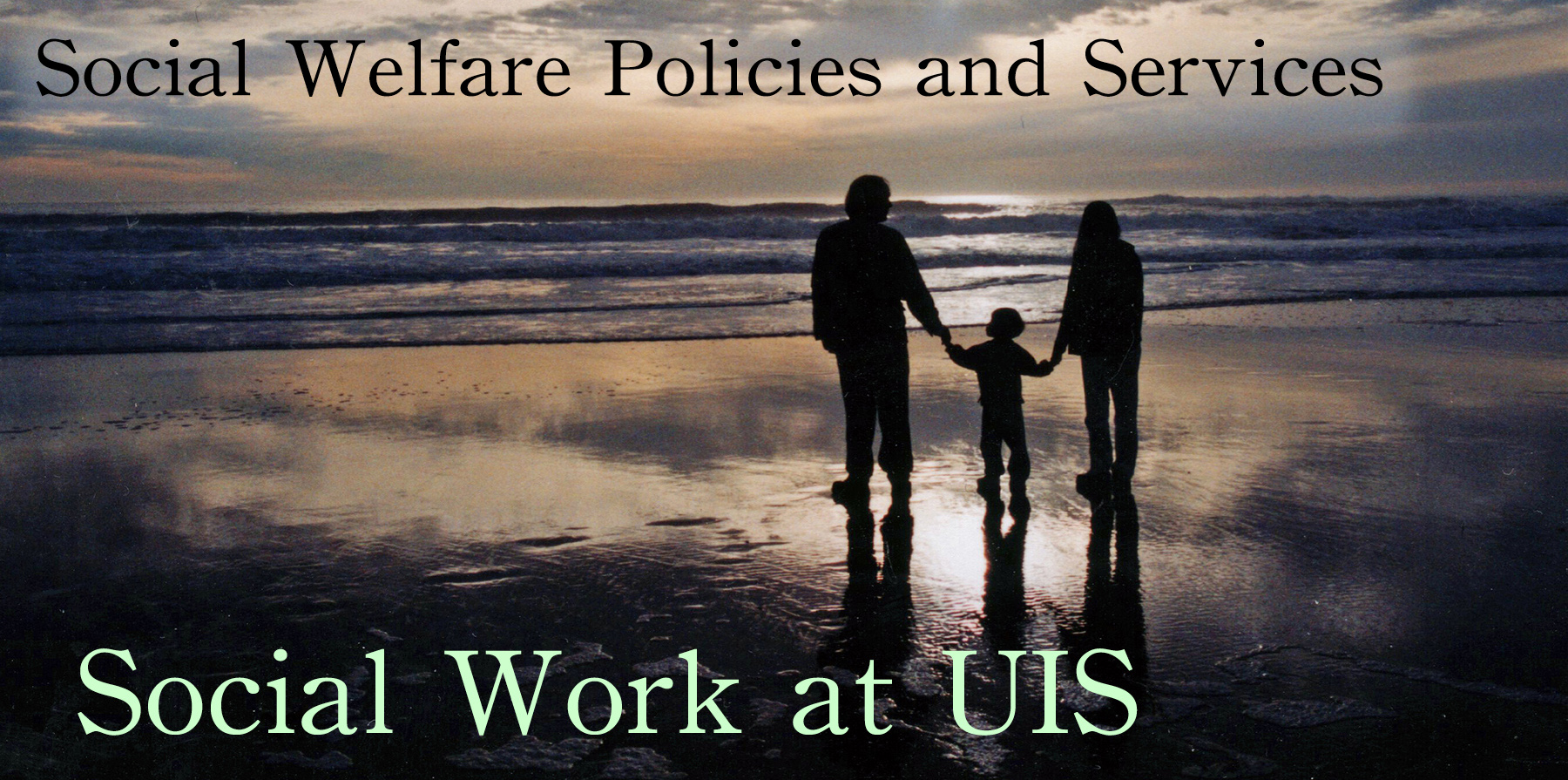Class meeting this week is on Zoom.
Class begins March 27th at 6:00pm and lasts until 9:30pm. Probably we will finish by 7:30 or 8:00pm, allowing you who attend the Zoom session to allocate 2 hours or 90 minutes to the discussion board. Your total time commitment to Zoom and discussion boards combined should be about 3.5 hours.
Class session lasts from March 17 at 6:00 p.m. to March 24 at 5:59 p.m., but the discussion boards will not be graded until after March 31st.
This page describes what you should do in this ninth session.
Objectives of this session
- Be aware of incarceration rates in the United States.
- Understand why incarceration rates are so high.
- Understand what recidivism rates are, and why they are so high.
- Understand the Smart Decarceration Grand Challenge in Social Work.
- Recognize some of the problems with human rights violations and errosion of dignity for persons who are incarcerated.
- Understand the sort of policies and services that might lower recidivism rates.
- Know some of the basic alternatives to incarceration.
- Know about crime prevention methods, and which ones seem to work best.
- Know about the problems with racist police (example: Ferguson, Missouri)
- Know about the problems of police brutality.
- Know about the evidence for unfair sentencing.
- Know about the problems of community-police relations.
- Understand the ideas offered by the Social Work Grand Challenge focused on preventing violence in families.
- Know about violence prevention methods in general, which techniques seem to work.
- Know about the problem of private prisons and poorly-trained corrections workers.
Time Budget for 11.5 hours
3h 30m Class meeting on Zoom and time spent on discussion boards.
42m Watch the video of the Education Committee’s hearing
8m Review the topics for the mock hearing and pick one
40m Pick a topic and prepare a 1-5 minute mock hearing speech you could give to a committee. You will continue working on this in session 10 as well, and have your presentation ready in session 11.
3h 30m Work on your second policy paper, finish it, and submit it in Canvas.
45m Read portions of the Justice Department’s investigation of the Ferguson Police Department
45m Read the article about being a guard at a private for-profit prison.
10m Read the article from the ACLU about the school-to-prison pipeline
55m Watch the documentary Policing the Police 2020 from Frontline.
25m take test #3.
What will happen in the class meeting at the start of this session?
This is my plan for what we will do in our Zoom meeting on March 17th:
- Check in
- Current events related to social welfare policy
- Discuss why mental health services and substance abuse services are underfunded and low priorities
- Talk about how we could make addiction treatment/recovery/prevention and mental health services higher priorities in public budgets
- Talk about the problem of abuse and mistreatment of persons with mental illnesses
- Review services for developmental disabilities, substance abuse, and mental health, and how those are funded
What must you read this week?
The short description of the School-to-Prison Pipeline available from the ACLU. (10 minutes)
Look over the Department of Justice’s report on the Ferguson Police Department. In particular, read the first 41 pages and then read the section “FPD’s Lack of Community Engagement Increases the Likelihood of Discriminatory Policing and Damages Public Trust (from the middle of page 86 to the middle of page 88). This is a long reading assignment, and it will be uncomfortable to read it, but you must bear witness to what was going on in Ferguson, and realize that this goes on in other places. (45 minutes)
Here are some key (or memorable) sentences:
Ferguson’s law enforcement practices are shaped by the City’s focus on revenue rather than by public safety needs.
The result is a pattern of stops without reasonable suspicion and arrests without probable cause in violation of the Fourth Amendment; infringement on free expression,as well as retaliation for protected expression, in violation of the First Amendment; and excessive force in violation of the Fourth Amendment.
City and court officials have adhered to these court practices despite acknowledging their needlessly harmful consequences.
This evidence of bias and stereotyping, together with evidence that Ferguson has long recognized but failed to correct the consistent racial disparities caused by its police and court practices, demonstrates that the discriminatory effects of Ferguson’s conduct are driven at least in part by discriminatory intent in violation of the Fourteenth Amendment.
Restoring trust in law enforcement will require recognition of the harms caused by Ferguson’s law enforcement practices, and diligent, committed collaboration with the entire Ferguson community.
City and police leadership pressure officers to write citations, independent of any public safety need, and rely on citation productivity to fund the City budget.
There is no indication that anyone considered whether community policing and public safety would be better served by devoting five overtime officers to neighborhood policing instead of a “revenue pipeline” of highway traffic enforcement.
Ignoring the central fact that they had handcuffed a man and put him in a police car despite having no reason to believe he had done anything wrong, a sergeant vigorously defended FPD’s actions, characterizing the detention as “minimal” and pointing out that the car was air conditioned.
When the man then extended his identification toward the officers, at their request, the officers interpreted his hand motion as an attempted assault and took him to the ground.
FPD’s suppression of speech reflects a police culture that relies on the exercise of police power—however unlawful—to stifle unwelcome criticism.
FPD officers seem to regard ECWs as an all-purpose tool bearing no risk. But an ECW—an electroshock weapon that disrupts a person’s muscle control, causing involuntary contractions—can indeed be harmful.
The punitive use of force by officers is unconstitutional and, in many cases, criminal.
The video makes clear, however, that the man never tried to stand—he only writhed in pain on the ground.
Finally, FPD does not perform any comprehensive review of force incidents sufficient to detect patterns of misconduct by a particular officer or unit, or patterns regarding a particular type of force.
Alongside its divisive law enforcement practices and lack of meaningful response to community concerns about police conduct, FPD has made little effort in recent years to employ community policing or other community engagement strategies.
When implemented fully, community policing creates opportunities for officers and community members to have frequent, positive interactions with each other, and requires officers to partner with communities to solve particular public safety problems that, together, they have decided to address.
Another officer told us that officers cannot “get out of the car and play basketball with the kids,” because “we’ve removed all the basketball hoops—there’s an ordinance against it.”
Read Shane Bauer’s article in Mother Jones about being a guard for four months is something you will find compelling, so please check it out. My four months as a private prison guard. (45 minutes)
I'm not insisting that study this, but I do want you to take a moment to glance at the “whole pie” report from the Prison Policy Initiative on the incarcerated population of the United States so you know this resource exists and what it can tell you.
What must you watch this week?
You must watch this Frontline documentary on police reform. It is Policing the Police 2020. (55 minutes)
You must watch this Education Committee Hearing from the 2018 session of the Illinois General Assembly. watch it to learn what expert testimony sounds like in an actual committee meeting.
What are the discussion questions this week?
Discussion Question 1:
Discussion Question 9-1: Check in. Tell us about any outdoor experiences you have had. Have you seen any interesting birds or mammals? Have you been to any parks? Have you noticed any flowers or trees or plants worthy of note? What do you like or dislike about the weather we have been experiencing? Do you get enough time outdoors under the sun, moon, stars, clouds, and sky?
Discussion Question 2:
Discussion Question 9-2: Having spent some time getting familiar with the issue of justice and injustice in our society, what are some of your observations and ideas? What, in particular, do you see as major problems, and what do you think might work as solutions for those problems? What are the key things we must address in order to make our society one in which people can expect justice, and what are the key problems now that prevent us from enjoying justice?
Discussion Question 3:
Discussion Question 9-3: Look at some stuff in the suggested and recommended (but not assigned) materials in the session 9 guide. Tell the class what you learned or found interesting in whatever item you choose to view or read.
Discussion Question 4:
Discussion Question 9-4: You have read a major portion of the Justice Department’s report on Ferguson, Missouri’s police department. Paraphrase and summarize what you read, and share it here, and explain how you would use your knowledge gained from this report in your work as a social worker.
Discussion Question 5:
Discussion Question 9-5: After watching the Frontline documentary Policing the Police 2020, and doing other reading this week, what seems to be the most hopeful or promising approach to improving community-police relations and reducing police brutality (your opinion on this), and in your opinion how could the Frontline documentary have shown viewers more about successful approaches to policing the police?
Discussion Question 6:
Discussion Question 9-6: if you are willing, share your second policy paper here for everyone to read (it will probably end up on the class blog as well, but let us discuss here in the discussion board).
Discussion Question 7:
Discussion Question 9-7: Which of the five situations do you want to be part of your mock hearing presentation in our 11th class meeting? Will you be presenting in support of the proposal, or will you be opposing it? What are some points you want to make, or some stories you want to tell? You can make things up, remember, so long as they are realistic, plausible, and reasonable. You are supposed to use the exercise to develop skills in policy practice, knowing how to persuade people, and not necessarily spend too much time getting all the facts and details perfectly right.
Discussion Question 8:
Discussion Question 9-8: What are your impressions after watching the Education Committee hearing from 2018? Yes, it may have been boring, but what did you notice about the dynamics in the room and the way the members of the General Assembly spoke, and the way they experts who were speaking for or against the bills spoke?
Discussion Question 9:
Discussion Question 9-9: Review some of the main points from the article about being a prison guard in a private prison. After reading the article, what are your opinions about the potential role of private prisons in the American corrections system?
Activities
Here is what I expect you to do this week
- Join us for the Zoom meeting on March 17th.
- Read and post in the discussion board for about 45 minutes to 2 hours, depending upon the length of our Zoom meeting on March 17th.
- Read portions of the Justice Department’s report on Ferguson
- Read the ACLU description of the school-to-prison pipeline
- Read the article about being a guard in a private prison
- Watch the hearing of a committee of the Illinois General Assembly’s House of Representatives from 2018.
- Watch the 2020 season Frontline episode Policing the Police.
- Work on your second policy paper, finish it, and submit it
- Decide which topic you will address in the mock hearing exercise, and study it to prepare your remarks.
Here are the instructions for this last task:
At our 11th course meeting (on March 31st) we will engage in a mock hearing. This first mock hearing is an in-class exercise, and isn’t graded, but we will do another mock hearing in the final class meeting (on May 5th), and you will be graded on your performance on that mock hearing.
You should use the 9th and 10th sessions of this class to pick a topic for the 11th session mock hearing, research that topic, and then prepare a very short piece of “expert testimony” on the topic. We will decide as a class on the 11th session what the topics will be for the graded mock hearing. For the class exercise mock hearing in our 11th class session meeting, you may choose from the following five proposals, and either argue in favor or against:
1) A bill similar to (already passed and made into law) Act 101-0558. Pretend such a bill has not been passed yet, and you are trying to convince the committee to support such a bill that pays a stipend to young persons involved with DCFS when they get apprenticeships or enroll in college. (see that the actual act that was passed in Illinois was amended by Senate Floor Amendment No. 2 and House Floor Amendment No.2).
Be prepared (or prepare to speak in opposition to this bill) by arguments that the bill is too expensive. Imagine that one credible estimate is that about 1,000 young person’s will use this benefit each year, and the average cost per person will be about $1,600 (total cost of $1.6 million per year), but another credible estimate from some other source predicts 2,400 young persons will use the benefit, at an average cost of $6,800 per beneficiary ($16.32 million per year). There will be an argument that the state cannot afford another $16 million. There will also be an argument that low-income families that look at the cost of college may renounce their parental rights and put their children in state care to help their children get this benefit. There will be a claim that the bill in its present form demands that universities give tuition and fee waivers, rather than having the state pay tuition and fees for the students (and thus, the bill should include another $20 million increase in the higher education budget to cover the highest plausible cost of this bill). There will be a claim that the state should provide half of the cost for tuition and fees or apprenticeship costs as grants, and then provide to this population special interest-free loans to cover the remaining half-the-cost, so that the young people will have some personal investment in their success, and also in fairness to the taxpayers who fund these apprenticeships and stipends.
2) An act in Illinois that ensures funding for substance abuse treatment and detoxification and recovery services will be distributed to counties through earmarked block grants at a rate never less than $150 per capita (meaning the state will spend no less than $1.9 billion on substance abuse in ways that distribute the spending at county-levels in equitable ways that reflect the distribution of state population). Small counties such as Greene or Menard would get $1.8 to $2 million and larger counties such as Sangamon County would get about $29 million, based on current populations. This would ensure that every county would have at least some treatment and recovery services available, funded locally through county boards or city budgets. The money would need to be used on prevention, detoxification, treatment, and recovery support services related to alcohol or drugs.
Arguments could include the problem with the funding level (way too much, some would say). Some would also raise questions about how counties would allocate this funding (multi-year grants to private non-profits or for-profit companies specializing in substance abuse treatment, local chapters of Alcoholic’s Anonymous, local school districts for their heath classes?). Would resources be distributed wisely and fairly within counties? Shouldn’t this sort of thing be done by some sort of state agency? Why distribute to every county, because wouldn’t it be more efficient to identify regions of the state and give larger grants for multi-county areas downstate to set up residential treatment facilities and so forth? Shouldn’t counties with state penitentiaries get more resources so that local entities can deliver services in the prisons? You can think of other objections. There are of course may obvious reasons to support such an act, and I will let you invent or discover those arguments on your own without offering any suggestions here.
3) A bill very much like Public Act 101-0438 that lets schools apply for funding to support safe schools and healthy learning environments. Imagine this hasn’t been passed yet, and argue for or against it. “Amends the School Code. With respect to school discipline improvement plans, makes changes to how the State Board of Education determines the top 20% of school districts, when notification is given that a plan must be submitted, which school districts are required to submit a plan, the timeframe for school board approval of a plan and submission of that plan to the State Board, and when additional annual progress reports are required. Establishes the Safe Schools and Healthy Learning Environments Grant Program and grants under the program. Sets forth requirements for grant applicants and provisions for the distribution of funds appropriated for the program. Requires the State Board of Education to issue a yearly report on the results of the program in cooperation with school districts …”
4) a bill very much like House Resolution 7663, Protecting Access to Post-COVID-19 Telehealth Act of 2020 (in the Senate this is S.4375 - Telehealth Modernization Act). This bill is endorsed by the Health Innovation Alliance, and the National Association of Social Workers, and many other groups.
5) Imagine you are speaking at the Springfield City Council during their budget hearing, and advocating for the city to earmark $1 million of the city’s $130 million expenditure to hire police social workers and another $1 million for creation of permanent housing solutions for local persons who are homeless. The police social work budget will come from the existing police budget (which is about $54 million), and the $1 million for permanent housing for persons experiencing homelessness will come from the infrastructure enhancement budget (normally about $18 million).
In the mock hearing, you will present your 1-5 minute talk as an “expert” other than who you are. That is, you will role-play as if you were someone else. You can be a fictitious person or base your character on a real person. You may use your actual name or use another name. You must introduce yourself (your role-play persona) and describe the ground of your expertise (what experiences or positions does your role-play persona have that gives them special authority to address the audience to advocate for or against the proposed action). You should mix facts and figures with moral argument and narratives or anecdotes. You may invent facts or figures if none exist (as I have already done with my estimates of the cost for providing apprenticeship stipends and college expenses to persons who have aged out of foster care or been adopted with support agreements), but when you invent things, your pretend numbers must be plausible, and if actual facts are available, you should use actual facts rather than inventing plausible numbers.















































